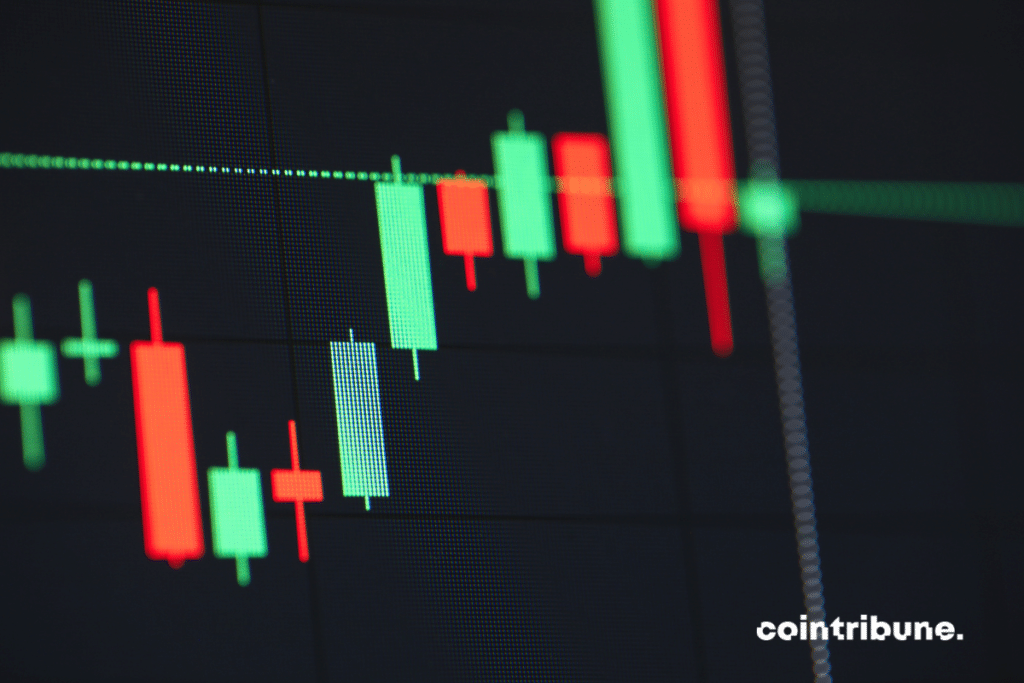Psychology and trading: Learning to control your emotions
In the complex world of trading, success doesn’t rely solely on technical skills or market analysis. In fact, one of the keys to effective trading lies in emotional management. Investors, whether novice or experienced, often face emotions like fear, greed, and hope, which can influence their decisions and lead to costly mistakes. However, mastering these emotions is crucial for achieving financial stability. In this article, we will explore how to develop emotional discipline in trading. We will discuss the impact of emotions, common mistakes, emotional management strategies, building a solid trading plan, and the importance of continuous learning to achieve success in financial markets.

The Impact of Emotions in Trading
Emotions such as fear, greed, and hope strongly influence trading decisions. Fear, for example, can lead a trader to sell prematurely, missing out on potential gains. Greed, on the other hand, can drive one to take excessive risks, endangering the invested capital. If not controlled, these emotions can result in impulsive decisions, often contradicting rational market analysis.
To effectively manage these emotions, traders need to understand their emotional reactions and how they affect their trading decisions. Recognizing the emotional impact allows traders to implement strategies to neutralize these influences, such as setting strict rules for entry and exit positions and establishing loss limits. Ultimately, the ability to manage emotions is a key factor that distinguishes successful traders from others.
Common Trading Mistakes Related to Emotions
Emotion-driven trading mistakes are common and can lead to significant financial losses. Understanding these mistakes is essential for any trader aiming to succeed in financial markets. Here are three common trading mistakes associated with emotions and how they can impact your investments.
Overtrading Due to Greed
Greed is one of the most powerful emotions in trading. Greedy traders may be driven to take too many positions, thinking they can maximize their gains quickly. However, this mindset often leads to substantial losses. When you multiply your positions without proper analysis, you expose your capital to increased risk. Greedy traders may also neglect risk management, resulting in devastating losses.
To avoid this mistake, it is essential to establish strict rules regarding position size and adhere to a pre-established trading plan. Avoid making impulsive decisions based on the desire for quick gains. Patience and discipline are crucial assets to counter greed and maintain a solid trading strategy.
Fear of Losses
Fear is a powerful emotion that can paralyze traders. The fear of losses can lead to irrational decisions, such as prematurely closing winning positions or holding onto losing positions in the hope that they will reverse. This mistake can result in significant financial losses and damage a trader’s self-confidence.
To overcome this mistake, it is important to implement effective risk management strategies. Set loss limits that you are willing to accept before entering a position, and strictly adhere to them. Additionally, keep in mind that losses are an integral part of trading and should not be avoided at all costs. By accepting risk, you can reduce the impact of fear on your decisions.
Lack of Discipline in Following the Trading Plan
Another common emotion-related mistake is not sticking to the trading plan. Traders may be tempted to deviate from their initial plan by reacting impulsively to market fluctuations or trying to recover previous losses. This lack of discipline can lead to chaotic decisions and capital losses. To avoid this mistake, it is recommended to strictly follow your trading plan, including entry and exit criteria, risk management, and overall strategy. Avoid emotion-based decisions by maintaining discipline, even when the market is volatile. Keeping a trading journal can also help you evaluate past decisions and improve discipline.

Strategies to Develop Emotional Discipline in Trading
In the world of trading, emotional control is essential to avoid impulsive decisions and maintain a solid trading strategy. Emotions can often hinder traders’ rationality, but there are concrete strategies to develop emotional discipline. Here are three strategies that can help traders stay calm and make decisions based on logic.
Meditation and Stress Management
Meditation is a powerful technique for developing emotional discipline. It allows traders to calm their minds, enhance focus, and manage the inherent stress of trading. By practicing meditation regularly, traders can develop the ability to observe their emotions without being carried away by them. This helps them take a step back from their emotional reactions and make more thoughtful decisions.
Additionally, stress management is crucial. Traders can adopt relaxation techniques, such as deep breathing, to ease physical and mental tensions. It is also essential to maintain a healthy life balance by regularly engaging in physical activity and ensuring quality sleep. A balanced mind and body are better equipped to handle the intense emotions of trading.
Trading Journal for Self-Evaluation
A trading journal is a valuable tool for developing emotional discipline. It allows traders to document their decisions, emotions, and transaction results. By analyzing this data, traders can identify patterns of emotional behavior and understand how their emotions influence their decisions.
For the trading journal to be effective, it should include specific details about each trade, such as the reason for entry, emotions felt, and outcomes. This self-evaluation helps traders take a step back and adjust their behavior to avoid emotional mistakes in the future. It is a concrete way to reinforce emotional discipline.
Establishing a Daily Routine and Adhering to a Trading Plan
A well-defined daily routine is essential for maintaining emotional discipline. Traders should create a routine that includes moments of mental preparation before trading, such as reviewing goals and analyzing the market. A routine helps focus and mentally prepare for the upcoming trading day.
Moreover, adhering to a trading plan is crucial. This plan should include strict rules for entering and exiting positions, risk management, and position sizing. By consistently following this plan, traders can reduce the impact of emotions on their decisions. It is important not to deviate from the plan in response to emotions such as fear or greed.
How to Build a Trading Plan to Minimize Emotional Impact?
One of the keys to minimizing emotional impact in trading lies in building a solid and well-thought-out trading plan. A well-designed trading plan provides a structure that allows for rational decision-making while reducing the influence of emotions. Here’s how to create an effective trading plan.
Establish Clear Rules for Entering and Exiting Positions
The first step in minimizing emotional impact is to define precise rules for entering and exiting positions. This involves determining the criteria that will lead you to open a position and those that will prompt you to close it. For example, you might decide to enter a position only when certain technical indicators confirm a trend and to exit when the market reaches a predetermined level of loss or gain.
By having strict rules in place, you eliminate the temptation to make impulsive decisions based on emotion. You simply follow the criteria you previously established, allowing you to maintain a disciplined and rational approach to trading.
Implement Effective Risk Management
Adequate risk management is the foundation of any trading plan aimed at minimizing emotional impact. You must define how much you are willing to risk on each trade as a percentage of your total capital and adhere to this risk limit. For example, you might decide to risk only 2% of your capital on each trade.
Additionally, you should also determine in advance the amount of loss you are willing to tolerate before closing a position. This will prevent you from panicking in case of losses and allow you to make more informed decisions.
Position Sizing and Portfolio Diversification
Position sizing is another crucial aspect of building a trading plan. You must decide the size of each position based on your capital and risk tolerance. A general rule is not to invest more than 5% to 10% of your total capital in a single position.
Moreover, portfolio diversification is important to reduce emotional risks. By spreading your capital across different asset classes or markets, you avoid putting all your eggs in one basket. This can reduce the emotional pressure related to the performance of a single position.
The Importance of Continuous Learning in Trading
Financial markets are constantly evolving, and traders must adapt to new trends, economic events, and technological innovations. That’s why it is essential to maintain a commitment to learning throughout one’s trading career. First, continuous learning allows traders to stay informed about market developments. This includes understanding macroeconomic factors, price movements, and new regulations that may influence trading decisions. Being well-informed enables making informed decisions and reacting quickly to emerging opportunities or threats in the market.
Secondly, continuous learning improves trading skills. Traders can enhance their skills by exploring new strategies, analyzing past performances, and studying mistakes to avoid repeating them. Additionally, access to training, webinars, and online educational resources allows traders to stay at the forefront of the industry and hone their technical skills.
Conclusion
Trading is a demanding field that requires much more than technical skills. Mastering emotions, building a solid trading plan, and committing to continuous learning are essential elements for success in financial markets. Emotions such as fear and greed can have a devastating impact if not managed effectively. A well-designed trading plan provides a structure for making rational decisions, while continuous learning keeps traders informed and sharpens their skills. By combining these strategies, traders can minimize emotional impact, reduce costly mistakes, and increase their chances of success.
Maximize your Cointribune experience with our "Read to Earn" program! For every article you read, earn points and access exclusive rewards. Sign up now and start earning benefits.
Diplômé de Sciences Po Toulouse et titulaire d'une certification consultant blockchain délivrée par Alyra, j'ai rejoint l'aventure Cointribune en 2019. Convaincu du potentiel de la blockchain pour transformer de nombreux secteurs de l'économie, j'ai pris l'engagement de sensibiliser et d'informer le grand public sur cet écosystème en constante évolution. Mon objectif est de permettre à chacun de mieux comprendre la blockchain et de saisir les opportunités qu'elle offre. Je m'efforce chaque jour de fournir une analyse objective de l'actualité, de décrypter les tendances du marché, de relayer les dernières innovations technologiques et de mettre en perspective les enjeux économiques et sociétaux de cette révolution en marche.
The views, thoughts, and opinions expressed in this article belong solely to the author, and should not be taken as investment advice. Do your own research before taking any investment decisions.